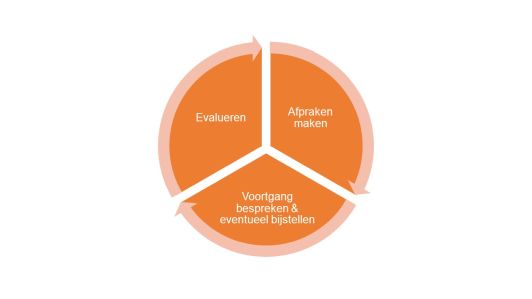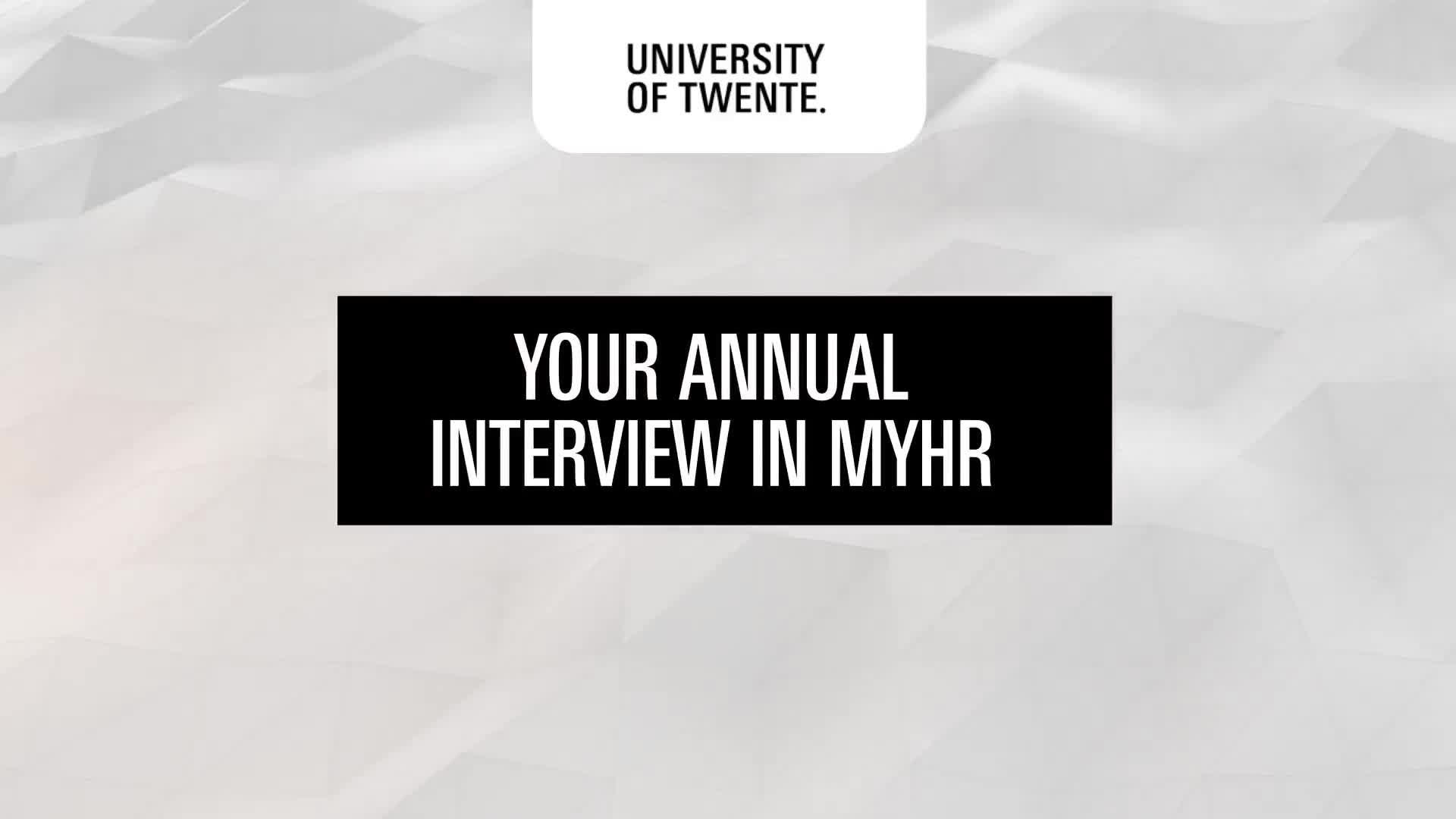At the University of Twente, the annual interview is the key to your professional growth. Together with your supervisor, you reflect on performance, development, and well-being, and make concrete plans for the coming year.
This conversation is an open dialogue where your unique talents are recognised and developed, enabling you to contribute optimally to individual, team, and organisational goals.
The annual interview is not just an evaluation but also an opportunity to discuss your training needs, receive targeted support, and foster a culture of learning. We recognise, value, and invest in your talent, with a focus on (team) collaboration, leadership, and feedback. Make your annual review a powerful moment for growth and appreciation.
What does the annual interview cycle look like?
The annual performance cycle is the tool used by the UT to reach agreements with individual members of staff, to monitor their progress, to offer timely guidance and, ultimately, to evaluate the results achieved.
The annual interview
Preparation | In preparation for your annual interview, you reflect on the agreements made over the past year and consider the topics you want to discuss during the conversation. You can use the conversation card with topics for this purpose. Additionally, you should check whether your ancillary activities and leave are properly registered. If agreed upon, you can also request feedback from one or more colleagues. |
Annual interview | Review of the past year. During the annual interview, you and your supervisor reflect on the past year. You look back on the agreements made, your (team) contributions, and development. Your supervisor evaluates your performance. |
Completion | Have you completed the annual interview? Add the meeting report to AFAS within 2 weeks and note the agreements made. Your supervisor will receive a task for approval. After that, it will be stored in your file. |
THE PROGRESS interview (Optional)
Halfway through the year, we conduct a progress conversation during which the supervisor and staff member take stock of the progress made on the agreements. As part of the talk, the current situation regarding agreements made in the annual interview is considered and the supervisor and staff member discuss whether these agreements need to be adjusted.

Additional information
- Recognition and Rewards (for scientific staff)
- Talent Development Map 3.0 (for scientific staff)
- For managers page (instruction)
- UT Leadership framework
- University Job Classification (UFO)
- CTD - Wide range of courses
- Shaping2030
courses
Contact
For questions, you can contact HR Services at 053 489 8011. For ideas, comments, or adjustments to this page, please email webteam-hr@utwente.nl.
